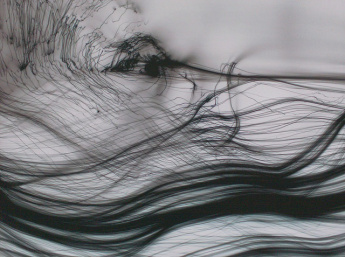

Orkney by Amy Sackville (Granta, 2013)
They say you shouldn’t judge a book by its cover, but I was instantly drawn to this book by the way it looked and the way it felt in my hands – a hardback but relatively short, strangely satisfying. Then I read the blurb on the inside cover and I wanted to know the rest. This is the second time I have read the book – I remembered the ending but had forgotten the details of the plot, so it was interesting to reread it with the outcome in mind.
Orkney is the story of a literature professor who marries one of his students, a woman young enough to be his daughter, and takes her (at her request) to a remote island in the far north of Scotland for their honeymoon. She remains an enigmatic figure throughout the novel – we are never even told her name – and the professor, Richard, becomes steadily more infatuated with her as he yearns to know her and find out her secrets, specifically why she feels such a deep connection to Orkney and to the sea.
The novel is written from Richard’s perspective and takes place during the course of the honeymoon, with the courtship recounted through flashbacks. Richard, however, is not necessarily a reliable narrator, and the nature of memory becomes one of the themes of the novel. As mentioned earlier, he never reveals his wife’s name to the reader. This adds powerfully to the mystery of her, and, just as Richard struggles to fully gain possession of her, her lack of a name means that the reader never fully has a sense of who she is. He constantly refers to her as ‘my wife’, showing his obsessive and possessive nature, and this is something that becomes increasingly troubling to the reader as the story progresses.
I personally enjoyed this book because it is set near the sea and I’m always drawn to coastal settings, and although it is contemporary, it is filled with allusions to literature, mythology and Scottish folklore. The setting is crucial, being almost a character in its own right, and both Orkney and the sea itself are strongly evoked through Sackville’s beautiful and poetic prose.
‘The sea is about to turn and has pulled right back, leaving a weedy wet band behind, and comes in flat and sidelong to the shore in unbroken ripples like silk. Further out, a band of darker grey-blue covered in tiny crests, a shelf in the sea-floor perhaps, and beyond that, further still, flat and silver-blue again, some darker striations, out to the earth’s curve. Another pale and sun-washed day. It’s beautiful, this barren place, in its way.’ (p.27)
Orkney is a strange and unsettling novel about the nature of love and obsession that will probably haunt you for a few days once you’ve finished it. I would recommend it to anyone who is an English lit nerd like me, or who has an interest in Scotland and its folklore. I think it will appeal to fans of both contemporary and historical fiction, and whilst it would be classed as a ‘literary’ novel, it is very readable (having said that, I do sometimes find the distinction between so-called ‘literary’ and ‘popular’ fiction troublesome – maybe a post for another day!). It is worth reading for Sackville’s descriptions alone, and I have added her first novel The Still Point to my ever-growing to-read list.
‘And I thought of the heavy-curtained sitting room with its clay and stone and stitched menagerie of seals and seabirds, and the cut-glass bowl in the centre of the table which already has collected the detritus of our days, the tokens of existence, hers and mine, mingled there – three pennies and a pound, an elastic band, tiny shells chosen for their wet lustre, now dry and ordinary; a piece of smoothed green glass, a pen, a paperclip, two silver coins and a pair of dice – how did we acquire them? All bedded in a small drift of sand, for our pockets are always silted with it by the end of the day, and each emptying dredges up a few more grains.’ (p.171)
My rating: 5/5
Advertisements Share this:




